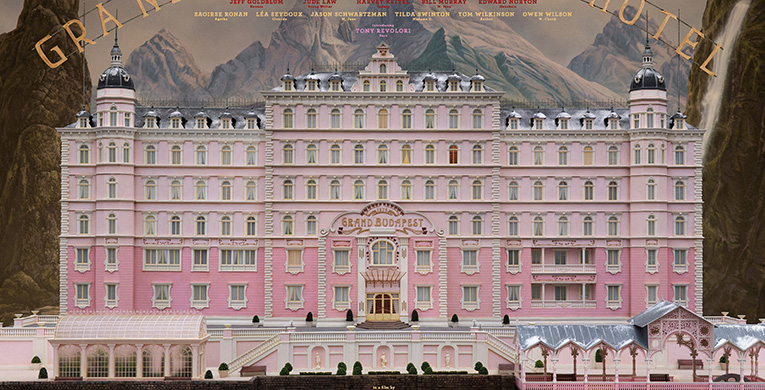
Wes Anderson is a director that for most people is a love-hate filmmaker. The director’s very specific visual style, marked by an intense attention to detail in regards to color coordination and symmetrically framed shots, combined with his very quirky plotlines, have made him one of the most polarizing directors currently making movies.
Those who have been lukewarm on Anderson should not expect things to change stylistically with his latest film, “The Grand Budapest Hotel.” The film is possibly the most Wes Anderson-feeling movie the director has ever made and has all of his usual tropes: his typical odd characters with endearing peculiarities, his unique humor and his distinctive visual style.
“The Grand Budapest Hotel,” like other Anderson films, feels like a high school play laid on a large scale, and the large cast of mostly familiar faces adds to the feeling of seeing friends on a stage. Stylistically it feels most similar to Anderson’s “The Life Aquatic” with a similarly ambitious scope.
The film has a series of connecting frame stories, but at the heart of the movie is the relationship between the young Zero Mustafa, a lobby boy at the titular hotel, and Monsieur Gustave H., the popular concierge of the hotel. After the death of a frequent guest at the hotel, the story turns into a hilarious oddball crime caper that has Mustafa and Gustave traipsing through a fictional European countryside.
Throughout the course of the story, the two grow to become, in their own words, as close as brothers while trying to resolve the death of the wealthy guest and dealing with an impending war that is about to strike their country.
While Anderson’s comedy can be hit-or-miss for most, this film is one of his funniest yet. Visual gags and clever dialogue are merged with absurdity and a touch of vulgarity in a manner that will make even the staunchest Anderson detractor chuckle.
While this film is loaded with lighthearted comedy, it is also teeming with moments of poignancy and emotional impact. The relationship between Mustafa and Gustave is very touching and their bond is the main strength of the film. There is also an understated romance between Mustafa and his love interest, a baker in the town that, while subtle, is tender and carries a hefty emotional impact.
For a film so light and whimsical, there is a lot of darkness in the story. Anderson uses his setting and characters to give an in-depth exploration of loneliness and relationships, while also skirting around the gravity of war. These heavy themes never outweigh the comedic moments, and yet at the same time, the serious moments are not drowned out in the laughter; instead, Anderson and his cast manage to masterfully walk the tightrope between the two.
Speaking of the cast, they offer incredible performances across the board. Ralph Fiennes as Gustave is the highlight of the film. He delivers the character’s witty quips with charm and adds even more depth to the mysterious character. The rest of the cast is delightful in their own right, and many of Anderson’s frequent collaborators such as Bill Murray and Owen Wilson make enjoyable cameos as well.
The visuals are standard Anderson fare, which I find to be fantastic. Beautiful landscapes and locations, astounding symmetry and campy action scenes all blend to create a visual sense of wonder around the fantasy world of the story. Ever since he directed the animated “Fantastic Mr. Fox,” Anderson has increasingly used stop motion animation and miniatures in his films and the use of these techniques adds to the children’s bedtime story for adults feeling that is present in “The Grand Budapest Hotel.”
While Anderson’s style might be polarizing, his latest offering is one of his finest yet. “The Grand Budapest Hotel” is a fun yet thought- provoking romp in a fantasy world that could only have come from Anderson. With this newest film, Anderson should manage to win over even some of his most stubborn critics.


























